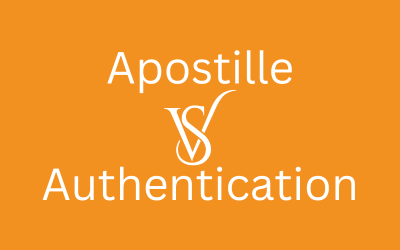Businesses that have incorporated as a corporation or formed a limited liability company (LLC) must carefully document their compliance activities. For example, when a corporation holds its annual general meeting (a.k.a, annual shareholder meeting), it must keep a record on file for regulatory compliance purposes.
Most states require that C Corporations (including those that have elected for S Corporation tax treatment) hold a general meeting for their shareholders every year. Usually, they are also required to hold at least one meeting with their board of directors yearly.
Businesses structured as an LLC may need to hold an annual meeting with their owners (LLC members) every year. Even though states don’t require LLCs to hold an annual meeting, an LLC must do so if its LLC Operating Agreement requires it. If an LLC has elected S Corp tax status, its annual meeting obligation stays the same as its underlying business structure. In other words, if the state nor the LLC Operating agreement require an annual member meeting, the LLC with S Corp election does not have to hold an annual meeting.
Proper meeting minutes are essential for keeping an LLC or corporation in good standing and maintaining the personal liability shield they provide to business owners. Before year-end, companies must file their annual meeting minutes with their other entity records.
Why Meeting Minutes Matter
Generally speaking, annual meetings are a formal discussion of a company’s goals, strategy, financial situation, proposed changes to governance documents, or other pending decisions that require a vote by or approval of the business’s owners. Whether a company must hold an annual meeting varies by state and entity type.
Meeting minutes record the numerous discussions, decisions, and actions taken during formal corporate meetings, such as board or shareholder meetings. While taking minutes may appear to be mere administrative tasks, meeting minutes have crucial uses for businesses, including:
- Legal Compliance – Meeting minutes are instrumental in proving a company’s adherence to its legal and regulatory obligations. They provide evidence that meetings were conducted fairly and pivotal decisions were made with due diligence.
- Accountability – Minutes are key to holding meeting participants accountable for their actions and commitments. They are a reference point indicating who agreed to do what and by when—so the likelihood of disputes or misunderstandings is diminished.
- Historical Documentation – Essentially, meeting minutes become the historical record of the company’s decision-making process, offering invaluable reference points for future audits, legal proceedings, and business continuity.
Not every company has to maintain meeting minutes, but certain business entities should prioritize them. Generally, companies structured as corporations, LLCs, or nonprofits need to keep meeting minutes for the following reasons:
- Corporations – Both publicly traded and privately held corporations are legally obligated to keep meeting minutes of all board of directors and shareholder meetings.
- Limited Liability Companies (LLCs) – While LLCs enjoy more governance flexibility, it’s still essential that they maintain minutes to document significant decisions and safeguard the limited liability status of their members.
- Nonprofit Organizations – To preserve their tax-exempt status, nonprofits must typically keep meeting minutes.
Types of Meeting Minutes
Meeting Minutes for Corporations
The shareholders of a C Corporation (or S Corporation) hold annual meetings to discuss the company’s needs, its previous year’s financials, elect new directors to the board of directors.
The directors are the corporation’s decision-makers, so as a shareholder, this is an important duty. The directors elect the officers who run the day to day operations of the corporation. Any big decisions of a corporation are run by its directors, so shareholders’ votes are critical. The directors of a corporation’s board of directors typically are elected to serve on the board for one year or until another meeting of shareholders is held to vote for new directors.
Alternative names for the annual meeting include annual shareholder meeting, annual stockholder meeting, and annual general meeting (or AGM, for short). Most corporations hold their annual meeting soon after the company’s fiscal year has ended, at a time and location set forth in the corporate bylaws. Bylaws also usually establish how notice of annual meetings will be given, the order of business that should be followed, and the quorum (minimum number of shareholders present) to hold a vote at meetings.
At an annual meeting, information is communicated, and various activities take place. For example, annual meeting agenda items might include:
- Sharing the status of the organization (usually the company CEO or president will do this)
- Appointing members to the board of directors
- Voting on initiatives and transactions that require shareholder approval
- Reviewing financial information
- Allowing shareholders to ask questions about the direction of the business
Shareholder Meeting Minutes
Corporate annual meeting minutes serve as the official record of a business’s annual meeting. Most states require corporations to keep meeting minutes, although this varies by state, so it is important to review each state’s individual requirements. During an annual meeting, the company’s corporate secretary takes detailed notes to capture everything discussed and decided upon during the meeting. Meeting minutes do not need to include every little detail, but they should document the key information and any decisions made or actions taken. In general, minutes should be detailed enough to serve as the corporation’s institutional memory.
Examples of the information that might appear in a corporation’s annual meeting minutes include:
- Date, time, and location of the meeting
- Who attended and who was absent from the meeting
- Who recorded the minutes (usually, the person serving as the corporate secretary)
- Meeting agenda items with a brief description of each
- Details about what was discussed during the meeting
- Results of any voting actions taken
- The time when the meeting adjourned
After annual meeting minutes have been approved (per the company’s bylaws), the corporation should keep the original executed copy in a safe place along with its articles of incorporation, amendments, bylaws, and other corporate records.
Sometimes corporations also hold special shareholders’ meetings in addition to their regular annual meeting. These happen if the board of directors is proposing significant actions, such as mergers, entity conversions, or other notable changes.
Even if you are a small business and a sole director or owner, it’s a good idea to even take just an hour or two at a coffee house and go over these items like a larger corporation would do. The same fundamentals of goals, sales, money, and all big picture items are important to a corporation regardless of size.
Corporation Board of Directors Meeting Minutes
Most states require that corporations hold a board of directors meetings (generally, at least once per year) to go over the past year’s details and decide on actions and strategy for the coming year.
Below are examples of issues that directors might discuss:
- Officers of the corporation
- The salaries of the officers
- The corporation’s net and gross profit
- Issuance or selling of stock, including the amount of dividend per share the corporation will issue
- Decisions about opening new lines of credit in the business name
- Legal and tax issues
Like annual meeting minutes, a board of directors meeting minutes should capture who was present at the meeting, what was discussed, and any actions and decisions made. The meeting minutes should be included in the corporate record book.
Meeting Minutes for LLCs
Generally, states don’t require Limited Liability Companies to hold annual member meetings and write minutes. However, if the LLC’s operating agreement states that members must hold annual meetings and record minutes, they must follow through on that provision to demonstrate their adherence to business compliance. Having an annual meeting and keeping a record of what was discussed helps validate that business owners are treating the limited liability company as a separate legal entity. That measure reinforces the corporate veil that protects LLC members’ personal assets from the company’s legal and financial liabilities.
Examples of what LLC members might discuss during their annual meeting include the introduction of new members, departure of existing members, proposed ownership distribution changes, the LLC’s financial performance during the past year, and the company’s goals for the year ahead.
Information captured in an LLC’s annual meeting minutes usually includes:
- The meeting’s date, time, and location
- Who wrote the minutes
- The names of the members in attendance
- Brief description of the meeting agenda
- Details about what the members discussed
- Decisions made or voting actions taken
- The time that the meeting adjourned
All persons who attended the meeting should have an opportunity to review and amend the minutes before making them an official part of the LLC’s records.
How Often Do Companies Need to Take Meeting Minutes?
The frequency of maintaining meeting minutes varies depending on the company’s bylaws and state regulations, but there are some standard guidelines:
- Board of Directors – Typically, corporations are required to record minutes at board meetings, which are typically held quarterly. However, the specific frequency can vary based on the company’s particular needs.
- Shareholder Meetings – Most corporations are required to hold shareholder meetings annually, but many have them more often. While minutes are not required to be taken at every shareholder meeting, it is advisable to document the proceedings, especially during the annual meeting where critical decisions, like electing the board of directors, are made.
- Committee Meetings – This doesn’t apply to all businesses, but if your company has corporate committees, like an audit or compensation committee, it’s advisable to document these meetings as well.
What Should You Do With the Recorded Minutes?
Minutes do not need to be filed with the state but should be kept with other corporate records, such as articles of organization for an LLC, articles of incorporation, bylaws, and resolutions.
Experts advise that, like other business documents, minutes should be kept on hand for at least seven years. Ideally, they should be made a part of the business’s permanent records. Members of the LLC or corporation (including shareholders, officers, and directors) are entitled to review the meeting minutes upon reasonable request to the company.
While business owners do not have to file meeting minutes with the state, they should still be considered important documents and are essential for protecting the LLC or corporation’s good standing and limited liability status.
How CorpNet Can Help
CorpNet can draft and prepare your annual meeting minutes to help you stay in compliance. This can be done immediately after your annual meeting, or if you’ve failed to create meeting minutes for years, CorpNet can also help you create multiple years of annual meeting documentation if you are behind with your annual meeting minutes for prior years. Upon completion, your meeting minutes will be emailed to you for your records and will also be uploaded and stored in CorpNet’s secure Compliance Portal so you can access them anytime and from anywhere.
It’s Time to Prepare for Year End
Don’t let your small business fall out of compliance. Use our annual compliance checklist to stay on track.





